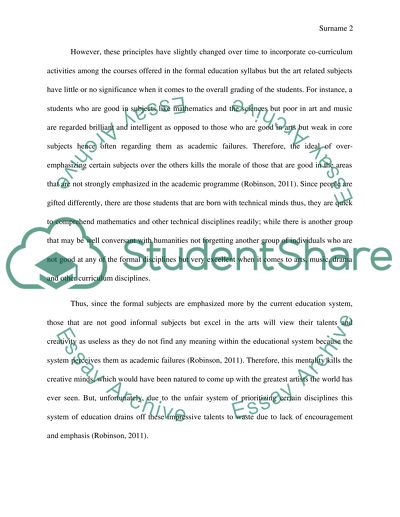Cite this document
(“Public Education is Killing the Creativity Essay - 3”, n.d.)
Retrieved from https://studentshare.org/education/1662522-informative-essay
Retrieved from https://studentshare.org/education/1662522-informative-essay
(Public Education Is Killing the Creativity Essay - 3)
https://studentshare.org/education/1662522-informative-essay.
https://studentshare.org/education/1662522-informative-essay.
“Public Education Is Killing the Creativity Essay - 3”, n.d. https://studentshare.org/education/1662522-informative-essay.


